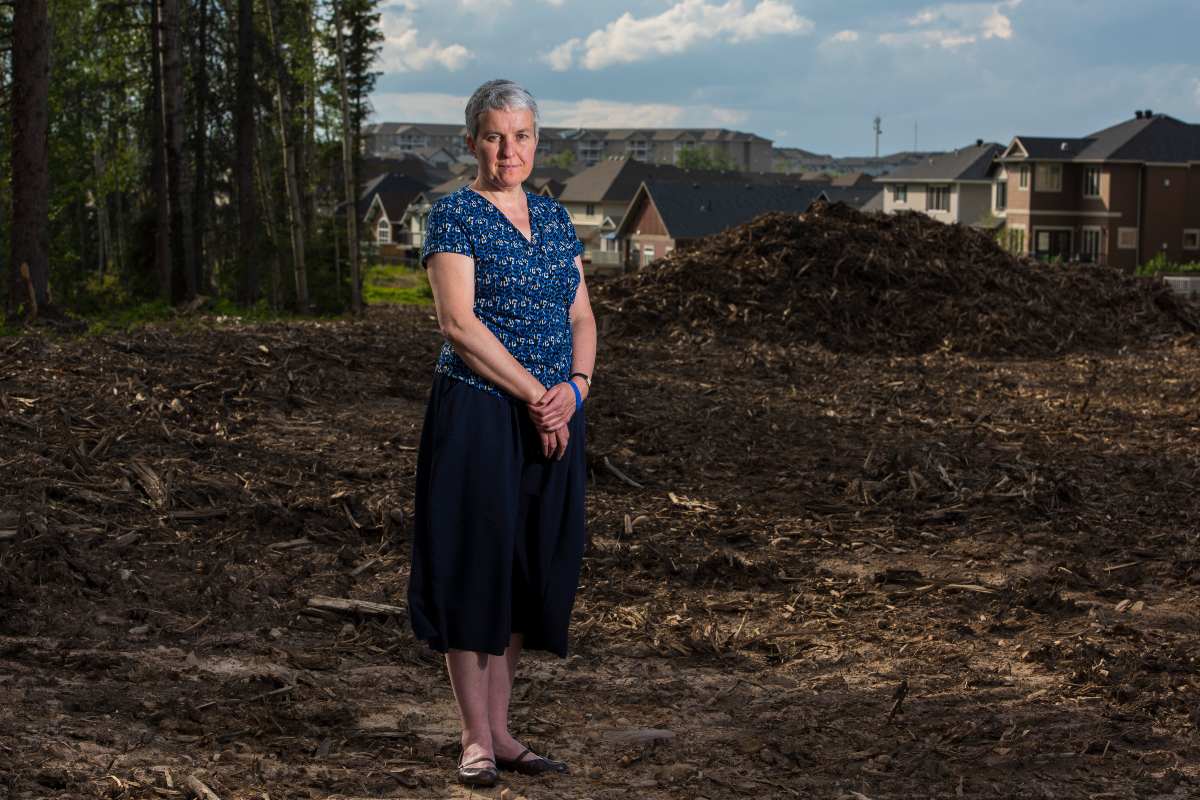
Professor Tara McGee, pictured in Fort McMurray following the wildfires in 2016. McGee now steps into her new role as Associate Dean of Engagement and EDI. Photo credit: John Ulan
When asked about her vision for the University of Alberta’s Faculty of Science, Tara McGee spoke of moving forward together.
“My focus is fostering a diverse, equitable and inclusive place for all in the Faculty of Science, including undergraduate and graduate students, postdoctoral researchers, faculty, and staff,” explained McGee, professor in theDepartment of Earth and Atmospheric Sciences. “It also includes supporting efforts to engage with future scientists in K-12 and other stakeholders.”
Equity, diversity, and inclusivity (EDI) is a priority not only within the Faculty of Science, but across the University of Alberta, which developed a campus-wide strategic plan for EDI in 2019.
On July 1, 2020, McGee was named Associate Dean (Engagement and EDI) in the Faculty of Science. In this new role, McGee will carry on the legacy that Margaret-Ann Armour established in her work championing diversity in science, technology, engineering, and mathematics (STEM).
McGee’s research career has a strong emphasis on safety and justice. She leads the active Human Dimensions of Hazards Research Group, which conducts social science research on wildfires and other hazards. McGee and her team have conducted research on wildfire prevention, mitigation, response, and recovery, including the Fort McMurray wildfire and the First Nations Wildfire Evacuation Partnership. She will continue to be actively engaged in research and teaching during her tenure as Associate Dean.
In her new role, McGee’s first area of focus will be the creation of a new Engagement and EDI Committee, a group that will include representatives from all departments in the Faculty of Science. The group will work together to identify initiatives that are taking place in the Faculty of Science to advance EDI; promote engagement and EDI in the Faculty of Science; and identify barriers related to engagement and EDI and how to overcome them.
Broadening the scope
McGee’s portfolio will focus on the inclusion of women in STEM, members of visible minorities, Indigenous peoples, people with disabilities, and LGBTQ2S+ people.
“I am particularly interested in initiatives that engage Indigenous youth and remove barriers to success for Indigenous students,” said McGee. “I expect my focus will change over time as we learn and identify new opportunities to strengthen engagement and EDI in the Faculty.”
During her three-year term, McGee will work closely with Matina Kalcounis-Rueppell, Dean in the Faculty of Science. “I look forward to supporting our dean and her strong vision of EDI as we work with our entire community to move forward.”
McGee also expects to learn a great deal about engagement and EDI initiatives that already exist, both within the Faculty of Science and in the wider campus community.